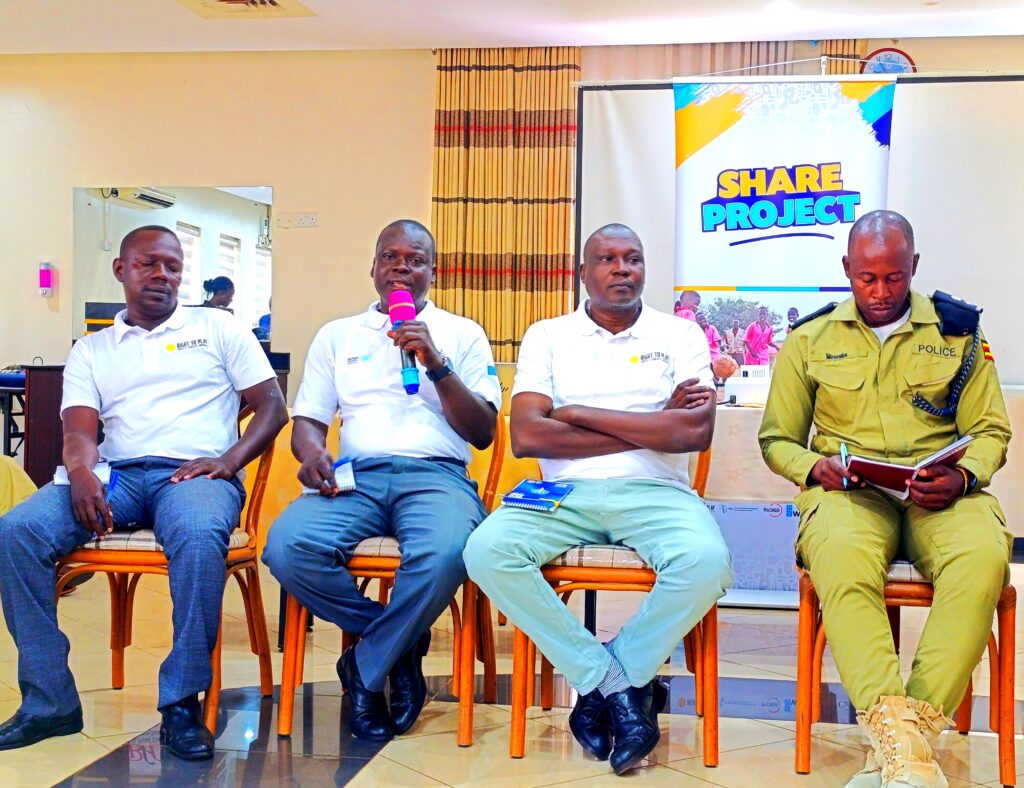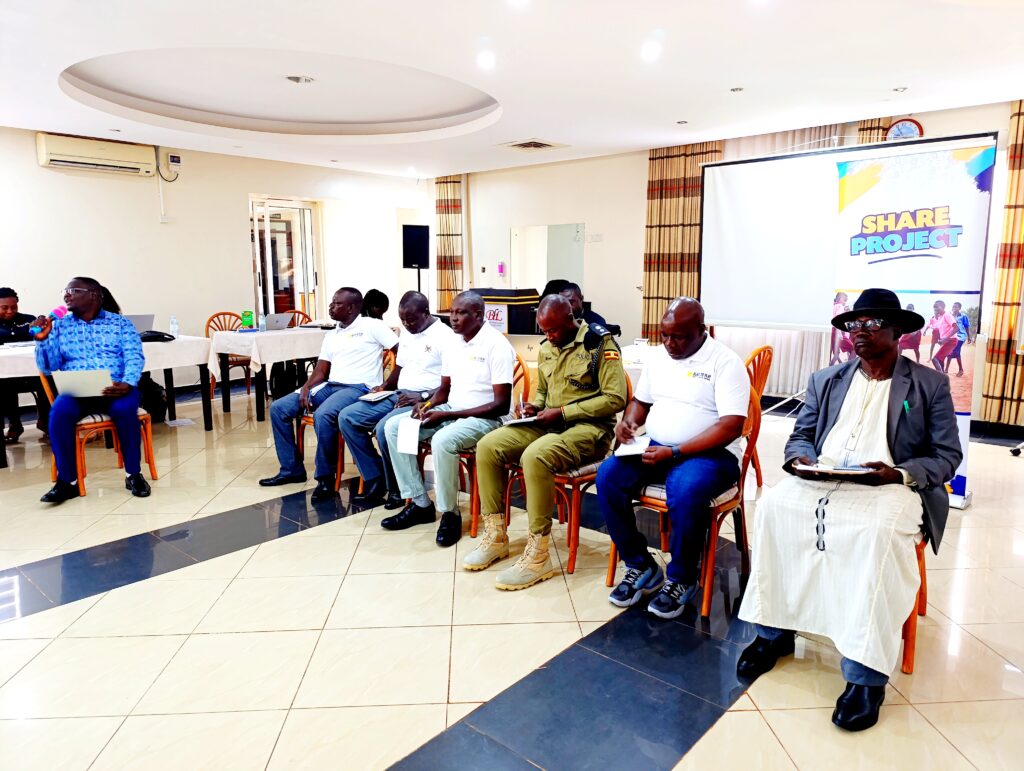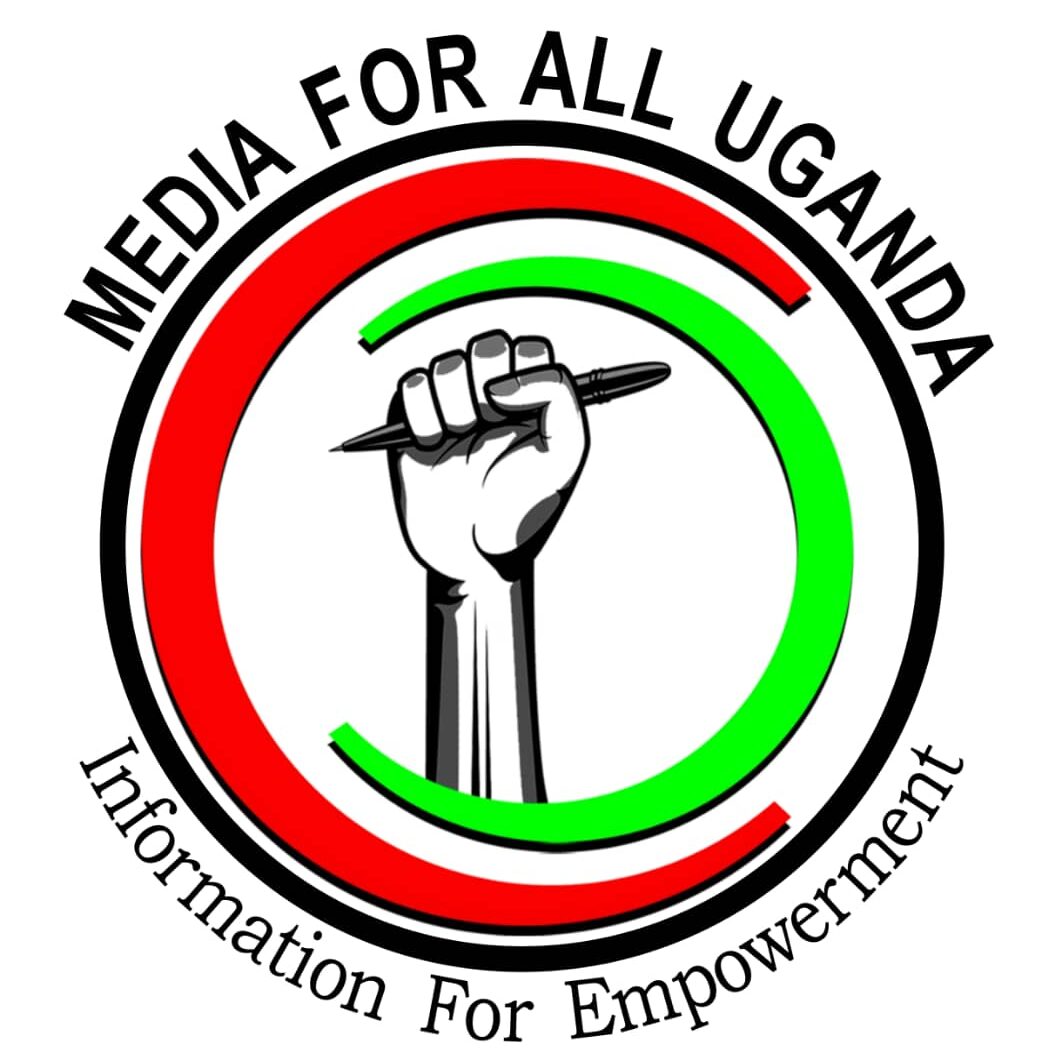ADJUMANI LEADERS RENEW FIGHT TO END CHILD MARRIAGE AMONG REFUGEES.
By Bazio Doreen.
Adjumani District leaders have renewed their fight to end child marriage among South Sudanese refugees living in the area.
The commitment was made during a leaders conference convened in Gulu City from Thursday 18th to Friday 19th September 2025 by Right to Play (RTP) an NGO implementing the Sexual Health and Reproductive Education (SHARE) project in the district.
The conference was convened to track progress, share challenges and make recommendations on the implementation of Sexual and Reproductive Health Rights (SRHR) interventions in the district.

The Challenge:
During a panel discussion, Abdul Ramathan, a Settlement Commandant, who represented the Refugee Desk Officer – Office of the Prime Minister (OPM) Pakele, revealed that child marriage among the refugees is being facilitated by negative cultural norms.
“We must acknowledge that the South Sudanese refugees have different cultural norms and practices from us. When a girl clocks 14 years and starts menstruation, there are cultural rituals done to indicate to the community that she is ripe for marriage. A white flag is put on top of their hut. This is done by a council of elders that are respected by refugee welfare councilors and yet these don’t report to OPM,” Abdul explained.
Abdul also notes that this is further worsened by economic challenges that many refugee teenage girls grapple with amidst poor parenting.
“The reduced food ration by World Food Program has made many families vulnerable with many girls being forced into early marriage or teenage pregnancies. Parents are selling their young girls quietly. They smuggle these girls to South Sudan and dowry is paid that side. They conceive and sometimes give birth while there. This makes it hard to track them when they return. The girls stay here while the men are left abroad,” Abdul noted.
However, this doesn’t affect the girls alone. Similarly, when a refugee boy clocks 14 years, a council of elders conduct some rituals to initiate them into what is termed as adulthood. Unfortunately, in response, boys now believe that they are “men” and start to engage in immoral behavior that most times leads to sex with their female peers and consequently unplanned pregnancies that some parents use as opportunities to ask for bride price thus child marriage.
This is also usually because the boys now initiated into “men” abandon school and focus on what they think “men” are supposed to do which often times is early marriage and providing for a home. This is also often an opportunity to engage in alcohol abuse, drug abuse and having many sexual partners/girls.
On his part, Wamala Damon, the Executive Director – Uganda Child Rights NGO Network, noted that fighting child marriage needs a multisectoral approach and everyone needs to participate in it instead of expecting the government and duty bearers to shoulder it alone. Wamala also said that families must be taught that it is their role to protect their children before the government comes in.
“We need to stop calling them teenage mothers because it seems this has now been qualified to become okay. These are child mothers. When we say child mother, we will think about our child and help do something about this vice as the parents we are. We have handed over our children to the state and that is why any man comes and does what they want with them,” Wamala said.
What can be done?
In affirmation, Hon. Mamawi James, the Member of Parliament Adjumani East Constituency, noted that children should be sensitized on the laws that affect or related to them. He also added that other strategies need to be devised to ensure that this trend stops.
“Our children in the communities still don’t know the law we are discussing about, it is our responsibility to sensitize them. But we must also know that not everything needs the law. Unless deemed necessary, at our local setting, some of these issues can be solved at our fire places in the evenings,” Hon. Mamawi said.
On how to forge a way forward, Mawadri Ramathan, the District Community Development Officer, said that government and partners will now work together to intensify both surveillance and sensitization especially in sub counties that host refugees.
“There are a number of strategies we can employ to fight teenage pregnancies and child marriage. The first and foremost is community engagement. We must sensitize the community at all levels on the dangers of child marriage. We must also continue building the capacity of our key community structures right from the LC Is and VHTs. These issues come from the community and these are key resourceful persons,” Mawadri said.
Walter Owinja, the OPM Monitoring and Evaluation Officer based in Adjumani, also noted that there is a need for all the stakeholders to come together and engage the council of elders so as to come to a common ground.
“We need to engage this council of elders and listen from them but also deliberate with them on a way forward about these challenges and the consequences of their actions,” Walter said.
Meanwhile, the teenage pregnancy rate in refugee hosting sub counties in Adjumani stands at: Adjumani Town Council (12.3%), Pakele (16.9%), Ukusijoni (16%), Ciforo (15.7%), Dzaipi (15.3%), Pachara (14.5%), and Itirikwa (14.9%). Generally, teenage pregnancy rate among refugees is 14% for those recorded but many are thought to be missed out due to the continued sneaking back of the girls to their home country, South Sudan.
In the financial year (FY) 2024/2025, among expectant mothers who attended their 1st antennal visit, 2,351 out of 14,984 were adolescents; out of 13,572 deliveries conducted, 1,852 were adolescents; and among 49,146 family planning users, 2,255 were adolescents.
Cumulatively, as of March 2025, Adjumani and its partners had reached out to over 11,851 adolescents and young persons with SRHR information and referred them to the nearest health facilities according to records at the District Health Office.
Similarly, there is also a tremendous effort in the education sector. Between January and September 2025, about 325 pupils and 225 students were returned to Primary and Secondary schools respectively. Adjumani has 155,361 in school adolescents and 104,984 out of school adolescents.

END.
